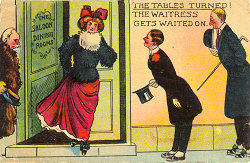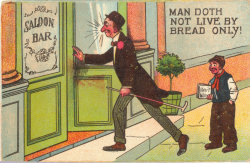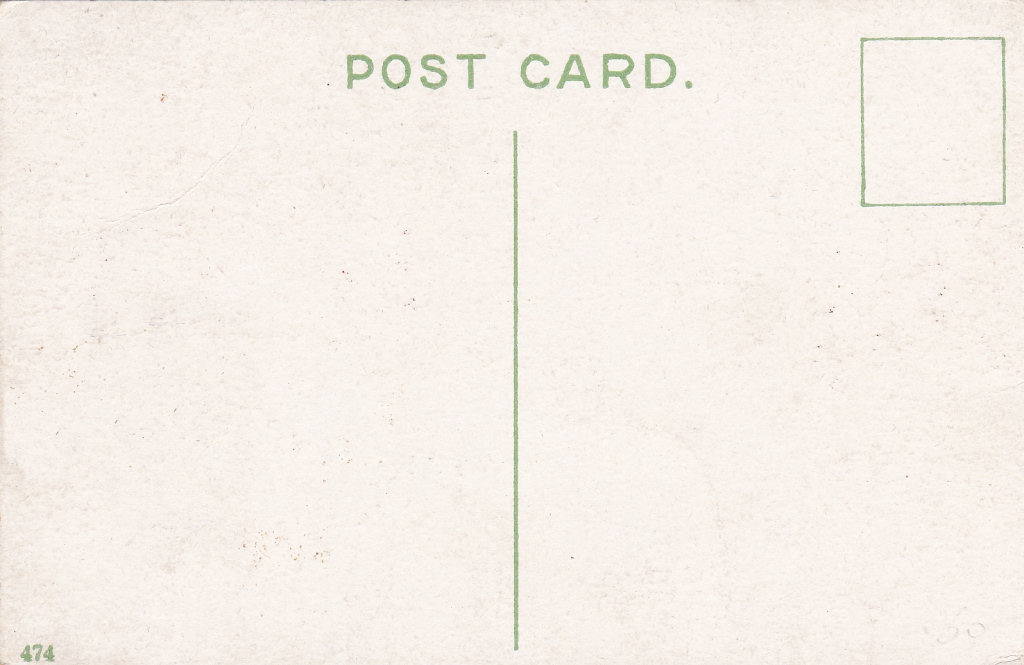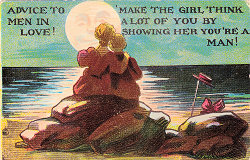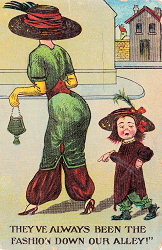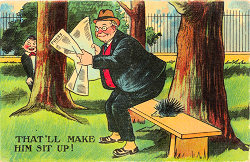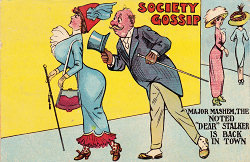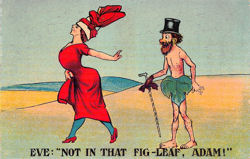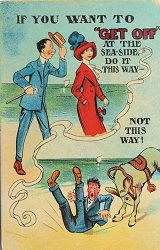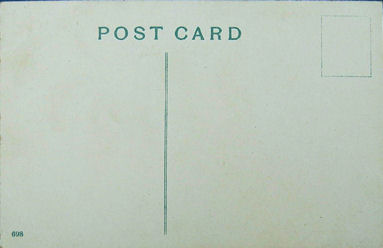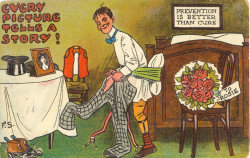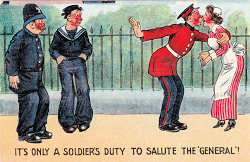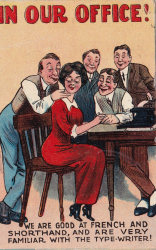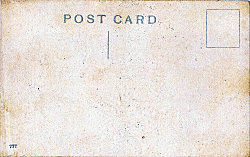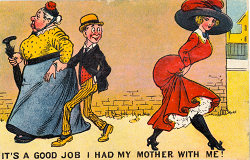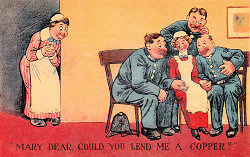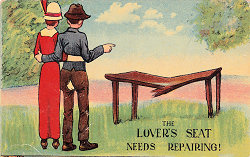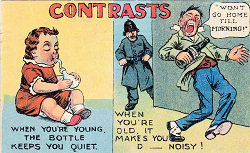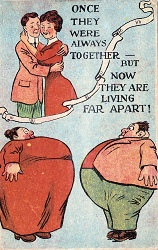|
Unknown "Green Back" Publisher |
|
One of the big problems in researching comic post cards is that many were published with little or no information on the artist, the publisher or the printer and do not have any distinguishing logo or series name. This makes attributing such cards to a specific artist very difficult. In the case of "F S" the early cards, published by the London View Company Ltd, often appeared with different backs, some with a publisher name and some without. After the London View Company closed H. Vertigen continued to publish "F S" cards. but without a signature and often with two versions of the back, one of which omitted the name of any publisher. Until 1916 cards which were clearly by "F S" (but without signatures) with no indication of the publisher, along with other cards, some of which looked as is they might also have been by "F S."
This page explored 6 groups of "green backed" cards, with approximate dates, which I have identified as Lined Address (1908/9), Working Space II (1909/10), Working Space Dot (1910/11), Number Only [PC. I] (1913), Number Only [PC II] (1914) and Entirely British (1916).
The analysis consists of three parts:
Chains of reprinted cards, often starting with a card known to be by "F S". This process records cards in earlier groups being reprinted in later groups..
The origins of cards which are associated with each group is considered in details.
The assessment concludes that Spurgin must have co-operated in the production of the "green backed" cards and was probably the artist responsible for the majority of the cards published for the first time as "Green backed" cards. This includes a number of distinctive sets not previously attributed to Fred Spurgin.
| Prior link to "F S" |
| Presenting a lady at Court [The Law Set] | ||||
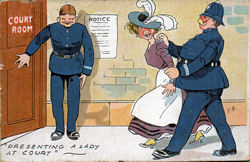 |
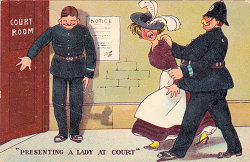 |
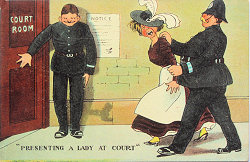 |
||
|
Signed "F S" Early Saxony |
|
|
||
| Note - This set is the only one with the Early Saxony back which was reprinted in this way | ||||
|
Many Happy Returns [Birthday Greetings Set] |
||||
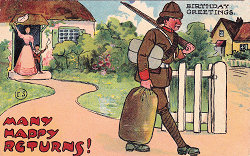 |
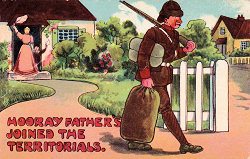 |
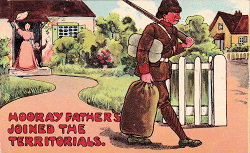 |
||
|
Signed "F S" Inland Germany |
Writing Space II | |||
|
Note - The change of title |
||||
|
It is very breezy down here |
||||||
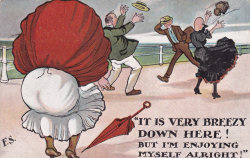 |
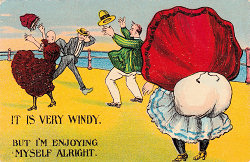 |
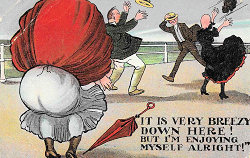 |
||||
| Signed "F S" No Logo back | [PC. I] | |||||
|
This card - which may be associated with the Down Here set, has a very complex publishing history, including versions redrawn by Donald McGill and Comicus. The ones reproduced here are the most relevant to the matters discussed on this page. For more information see It is very Breezy |
||||||
|
Do you want a bed warmer Sir? |
||||||
|
|
|
|
|
|||
|
Signed "F S" |
918 Entirely British |
|||||
| Fleas [Fleas Set] | ||||
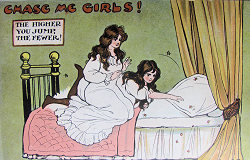 |
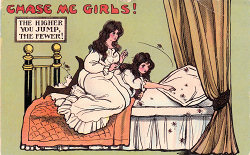 |
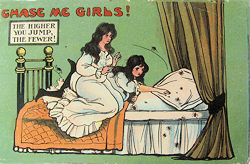 |
||
| (Veritgen) Writing Saxony | 695 [PC II] | |||
|
Why Lucy did not get the letter |
||||
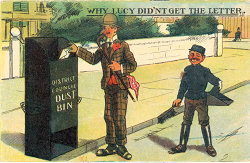 |
 |
|||
(Vertigen) 6074 Series 607x |
|
|
668 [PC II] |
|
|
Lucky Washee Man |
||||
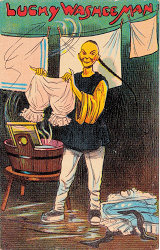 |
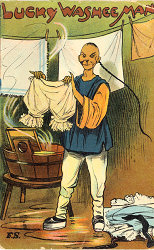 |
|||
|
Signed "F S"Series 100x back |
534 [PC. I] |
147 [PC II] | ||
|
Advice to Ladies about to be married [Advice to ... Set] |
||||||
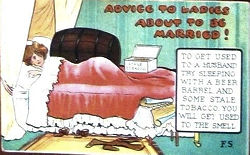 |
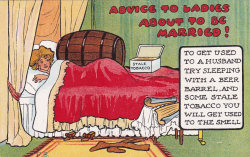 |
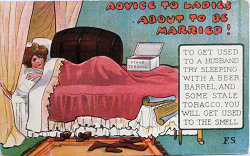 |
||||
|
Signed "F S" Late Saxony |
1009 Crown Series | Writing Space II | ||||
|
Also backs for the USA market |
||||||
| Oh George, I think this place is Ripping | ||||
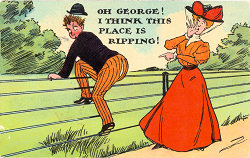 |
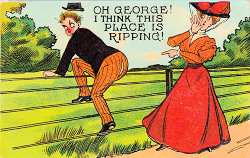 |
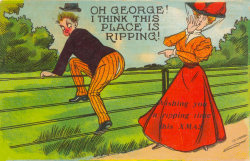 |
||
|
Writing Space dot (with Xmas message) |
||||
|
Don't Worry! I have Millions at the back of me! |
||
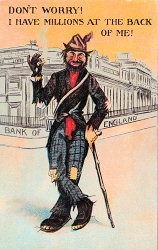 |
||
|
Signed "Dauber" Satire Series |
412 [PC. I] |
|
| No known prior link to "F S" |
| How they go home | ||
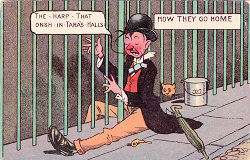 |
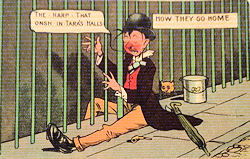 |
|
| Writing Space II | ||
| They do like their little bit of red. | ||
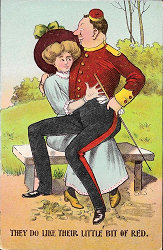 |
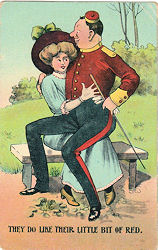 |
|
| Writing Space ? | ||
|
I saw these last night - Are they yours? |
||||||||
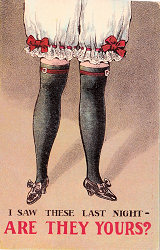 |
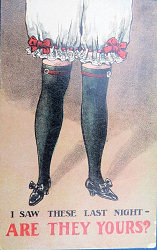 |
|
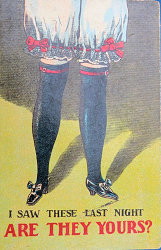 |
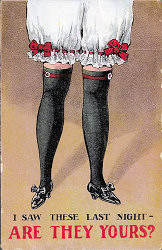 |
||||
| Writing Space II |
|
666 [PC II] |
||||||
|
And the following with unknown backs |
||||||||
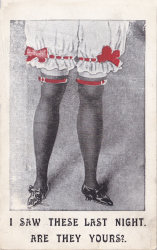 |
|
|
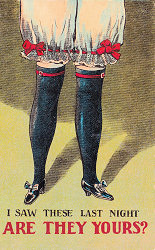 |
|||||
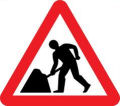

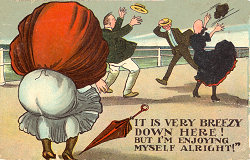
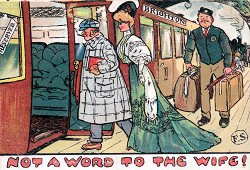
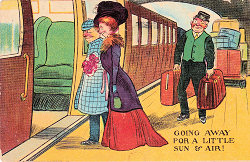
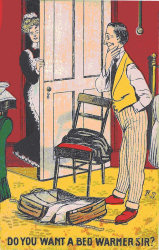
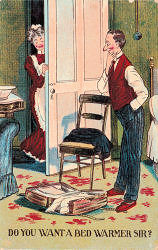
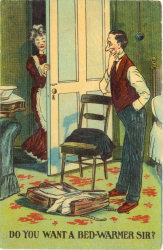
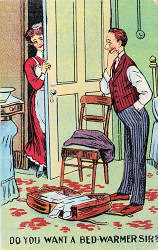
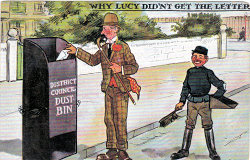
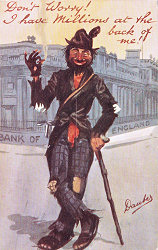
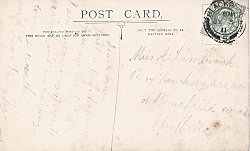
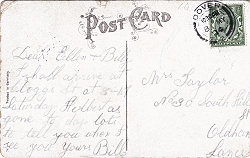
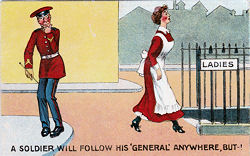
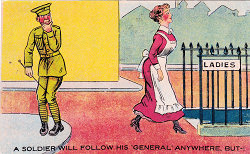
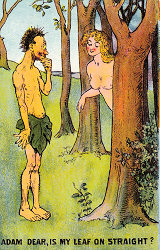
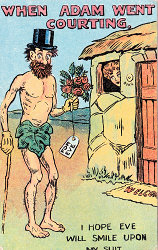
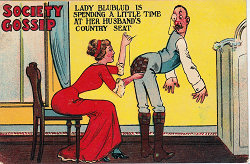
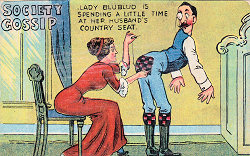
.jpg)
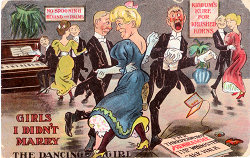
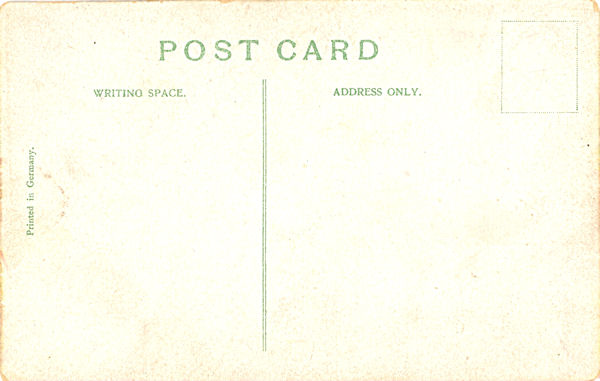
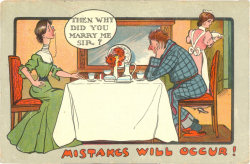
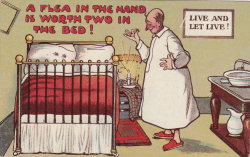
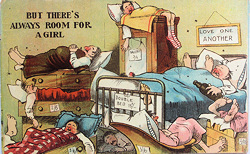
.jpg)
